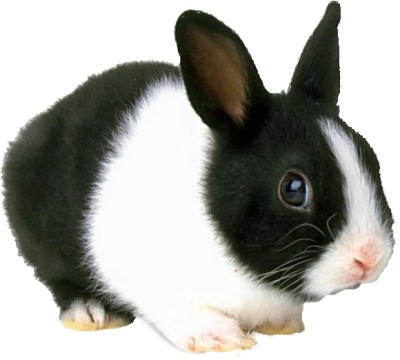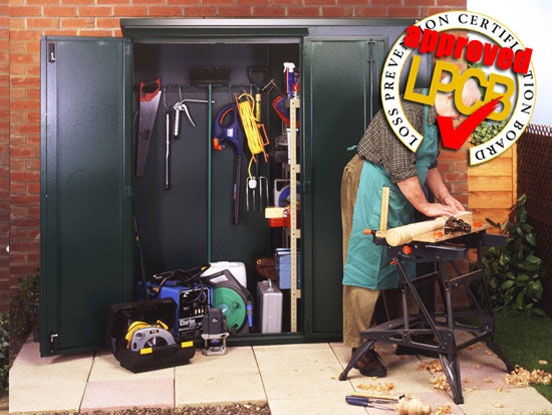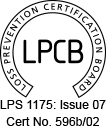Here is some safety advice for rabbit owners
How safe is your home and garden?
Rabbits,like other household pets, are not always aware of what is good for them and what they should avoid. So we all need to be vigilant in our homes,sheds, garages and in the garden. By being aware of what could be poisonous and where dangerslurk we can minimise the risk of our pets falling victim to the many substances both natural and manufactured which we take for granted but which could potentially prove harmful. There has not been a great deal of research to discover which substances are of specific danger to rabbits, so experts have had to assume that some substances and plants which are known to poison other animals could potentially be harmful if ingested by rabbits as well. Although proven instances of rabbits being accidentally poisoned are rare, it is recognised that figures may not be accurate as it may not always be possible to prove whether a rabbit being ill, is the result of it encountering apoisonous substance, or whether there was some other cause.

In animals the most common causes of poisoning are pesticides - such as rodenticides,herbicides, insecticides and fungicides prescribed drugs and plants. A problem with poisoning in rabbits is that, unlike cats and dogs, they are unable to vomit. This means that ingesting compounds which would usually induce vomiting in other animals may go unnoticed. Not only are rabbits unable to get rid of thepoison by vomiting, but because they are caecotrophic, a toxic compound can be recycled through the digestive system. If you own a rabbit it's a good idea to take a regular walk around your home and garage looking at it from a rabbit's eye view to check that everything that could be harmful is stored safely out of reach. It's so easy to leave a paint pot with a loose fitting lid on the garage floor, or cleaning fluids in the bathroom. Check your garden to see that your pet is unlikely to encounter potentially poisonous plants both ones you may have planted and wild plants that could have self-seeded. Many familiar house plants are poisonous aswell, so always ensure that any pots are kept well out of their reach.
While someowners have reported that their rabbit appears to be unaffected by nibbling plants listed as poisonous, another rabbit (dependingon a variety of factors including its state of health or age) may become seriously ill. Eating the occasional leaf from many of the plants listed as poisonous is unlikely to cause problems, but if the rabbit has aone-leaf nibble every day or eats a quantity it may not be good for it.
Most owners state they would prefer to err on the side of caution where the safety of their pet is concerned, and keep their gardens clear of plants thought to be poisonous. There are several ways of achieving this. You can avoid planting anything that appears on these lists,or plant them only in high raised beds or tall planters. Alternatively you could erect sturdy fencing to separate your rabbit from any areas where flowers, trees or shrubs are planted though given the ingenuity of rabbits this is harder to achieve than it may seem. Or you can make a permanent or movable runthat you can put on a lawn to coner your rabbit to safe areas of the garden.
Mycotoxins
Mycotoxinsare poisins associated with fungi and they can cause problems in many species of animals. Mycotoxins can be found in mouldy feeds and nuts. You should ensure that feed isnot kept for long periods and is always stored in an airtight container in adry place. Make sure that any hay you feed is dry and free from dust and mould.
Chemicals
Chemicals used in the home and in the garden should all be considered as potentially hazardous,so always store chemicals safely away from pets. Clear up any spills immediately it only takes seconds for a rabbit's paws to become contaminated, and then licked. If youare cleaning don't leave buckets containing cleaning chemicals unattended, perhaps to go and answer the phone it's so easy for an inquisitive rabbit to tip it over. And don't decant cleaning materials into unlabelledbottles or containers as you will not then know what chemicals the cleaner contains and this information is vital should your rabbit be poisoned and you need to takethe bottle to the vet to identify the correct treatment.
Remember the chemicals and paints that you store in the garage. Antifreeze is particularly dangerous a sit has a sweet taste and there have been reports of rabbits being poisoned by coming into contact with it. Many owners choose not to use garden chemicals ifthey have pets, but if you do use chemicals such as pesticides or insecticides as sprays, water-on formula, or granules,take great care. Clear up any spills immediately as the chemical could get on the rabbit' s paws or fur. Rabbits could also brush against newly sprayed plants so that the chemical is transferred to the fur, and may later be ingested when the rabbit grooms itsel for is groomed by acompanion bunny, or granules could adhere to the paws and be ingested during grooming.













